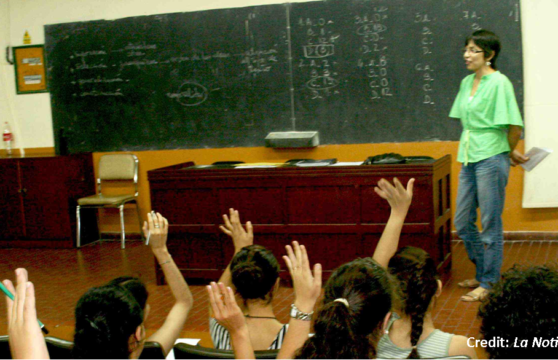Three new studies on educational decentralization
Decentralization and school-based management policies, and their effects on learning outcomes in the developing world.
This post is also available in: Spanish
A recent Council on Foreign Relations report chaired by former Secretary of State Condoleezza Rice and former New York City Schools Chancellor Joel Klein argues that the U.S. “education crisis is a national security crisis.”
Citing astonishing figures on the nation’s high drop-out rates and low rankings on international student achievement tests, the report asserts that the country’s failure to educate its children properly puts America at risk of being unable to maintain a strong military, well-staffed intelligence agency, healthy economy, and an effective diplomatic corps. But while linking education to national security may attract public attention to the problems of U.S. schools, does it stretch the definition of “national security” too far?
Over the past decade, national security has become an increasingly elastic term. In 2010, two former chairmen of the Joint Chiefs of Staff argued in a Washington Post op-ed that obesity is a national security issue because the large number of overweight children in the country cannot meet the rigorous physical requirements of the Armed Services. As demonstrated by several New York Times articles, obesity thus joined agricultural subsidies, immigration reform, and even the domestic auto industry as issues that lawmakers and the public cannot consider without addressing the potential for risks of terrorist attacks or the preservation of U.S. foreign interests.
There is a case to be made that education is a national security issue, but we must check the term’s tendency to become all-inclusive and all-important. The report’s bold use of the term and strong focus on the needs of the military and intelligence community eclipse for the average reader or newspaper headline the discussion of more important education issues, like economic competitiveness, civic engagement, and the individual well-being of students and their future communities.
Concern that this is the wrong way to talk about education is not to say that the report’s three key recommendations (PDF) are wholly ill-conceived. The first two – strengthening and expanding the Common Core standards and promoting school choice – are exactly what the nation needs to revitalize the education system and improve student and teacher performance. But these ideas are not new, and are just as valid without taking national security into consideration.
The report’s final recommendation, however, seems particularly indicative of over-reach by the national security blanket. It calls for a “national security readiness audit” by the Department of Education to measure education factors including graduation rates, the number of students passing Common Core classes, and student performance in “national security skills” like foreign languages and computer programming. While nation-wide performance evaluations – including in these specific areas – are needed to improve the education system, explicitly implementing them for the good of national security risks losing sight of the most important reasons for ensuring that kids are learning.
The report concludes by arguing that the current public discourse, economic discontent, and political consensus surrounding education make this “a time like no other to change the way the United States educates its children – and to achieve transformational reforms on a level never before achieved in the U.S. school system.” I agree. But we can do so without over-stretching the national security argument or endangering our sense of priorities.
Decentralization and school-based management policies, and their effects on learning outcomes in the developing world.
What recent research and experience tell us about achieving eight goals set by the SABER-Teachers Program.
Teacher evaluation policies used to improve the effectiveness of teachers may be more successful were they to provide feedback.

